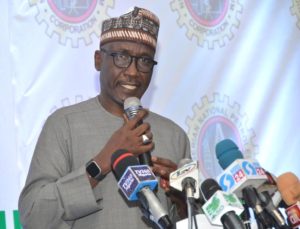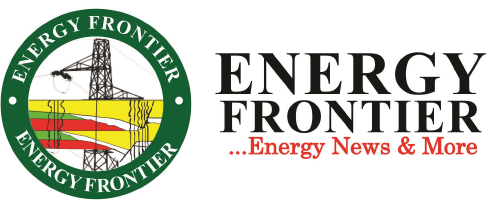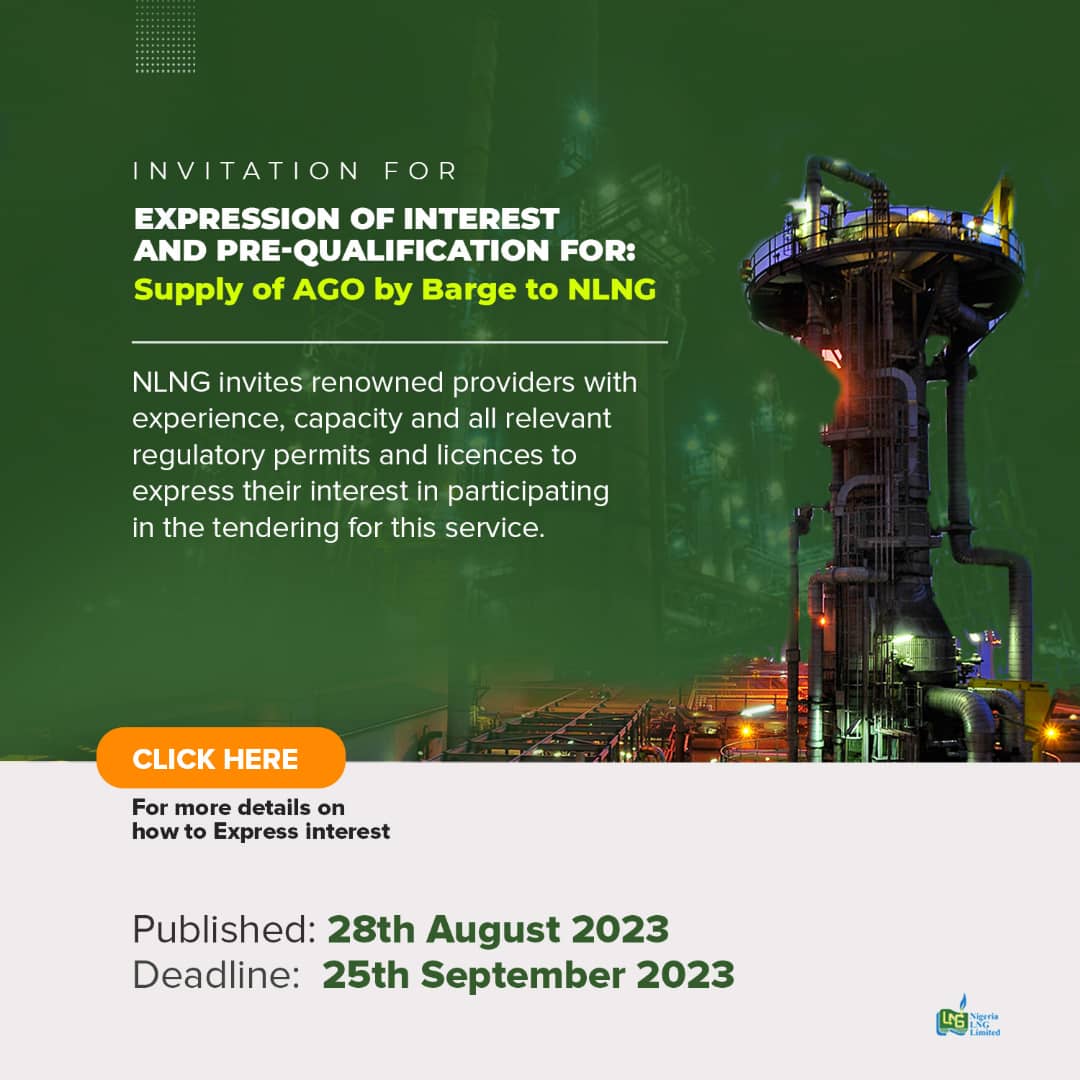
The Nigerian National Petroleum Corporation, NNPC, is investing aggressively in gas to take advantage of the energy transition and get Nigeria ready for the future in the face of the dwindling fortunes of petroleum liquids.
The Group Managing Director, NNPC, Mele Kyari stated this at the Media Parley with Association of Energy Correspondents of Nigeria, NAEC, held last weekend in Abuja.
He spoke on other issues in the Oil and Gas Industry in Nigeria. Simon Ugwu, was there to capture it for Energy Frontier. Excepts.
I want to welcome you to this interactive session. It is good to be able to meet with you face to face, after the lockdown and the restrictions imposed by the Covid-19 pandemic.
You would recall that in my inaugural address and at various other fora, I promised a deeper engagement with our stakeholders, with a view to carrying them along in all that we do as a National Oil Company.
We consider the Media, the Fourth Estate of the Realm, as a critical stakeholder because we know that without you, all our efforts at reforming and transforming the Corporation from an integrated oil and gas company into an energy company would end up like one winking in the dark.
I want to thank you for the unalloyed support you have given us over the past one and half years and to encourage you to continue to support us to enlighten Nigerians on our operations and activities.
One other promise I made at our inauguration was that we would make NNPC’s operations as transparent as possible. Over the past one and a half years, we have tried to keep that promise by sustaining the publication of our Monthly Financial and Operations Report (MFOR). No company, to my knowledge does this.
We have taken our transparency drive a notch higher by publishing our Audited Financial Statement for the 2018 and 2019 financial years on our website for all interested persons to see the significant turnaround in our performance recording 99.8% year-on-year.
We have also launched the Open Data portal on our website where such information as our staff strength and asset base are published.
We have also signed on as an Extractive Industry Transparency Initiative (EITI) Partner Company, to join a group of over 65 extractive companies, state-owned enterprises, commodity traders, financial institutions and industry partners who commit to observing the EITI principles by promoting transparency in all facets of our operations and transactions
You would agree with me that as we speak, there is little or no information you want about our operations that is not already in the public domain. I can say that we have kept our word as far as transparency and accountability are concerned. We will continue to do more until the word opacity is no longer associated with the Nigerian Oil and Gas Industry.
In our core business, I did promise that we will boost exploration and production with a view to raising national reserves to 40billion barrels and production to 3million barrels per day. Much has been put in place to make these a reality.
For example, we have revved up exploration work in the inland basins culminating in the oil find in commercial quantity, in the Upper Benue Trough. The drilling of Kolmani River III Well is ongoing with very high prospect of oil find. Seismic data collection is ongoing in the Bida Basin and we are re-launching exploration work in the Chad Basin.
We have also resolved a number of disputes that hampered production activities with a view to boosting production to meet the 3million barrels per day production target. Key among these are dispute involving Shell and Belema Oil that shut in over 30,000barrels per day production in OML 25.
We have also executed the Abo OML 125 Heads of Terms leading to the resolution of the issues around most of the deep offshore production sharing contracts, paving way for eventual renewal of OML 125 and further investment in exploring the lucrative field.
We have also secured a number of alternative funding facilities for the NPDC and some of our Joint Ventures to facilitate the development of some of our assets. These include: the N875.75m NPDC OML 65 Alternative Funding and Technical services package with CMES-OMS Petroleum Development Company, the $3.15bn Alternative Financing Package with Sterling Exploration and Energy Production Company Limited (SEEPCO) and other partners for the development of NPDC’s OML 13.
OML13 First oil of about 7,900bpd was achieved from the project on 1st April, 2020, while production is expected to peak at 94,000bpd and 542mmscfd within four years.
The Covid-19 pandemic and the subsequent OPEC-Plus agreement to cut production has impacted our plans and activities with regard to production growth, but I can tell you that much has been achieved in this regard. We are just waiting for normalcy to return to the industry to unleash some of these projects.

In the meantime, we are investing aggressively in gas to take advantage of the energy transition and get Nigeria ready for the future in the face of the dwindling fortunes of petroleum liquids.
You may be aware of the NLNG Train 7 and other gas infrastructure projects such as the Escravos-Lagos Pipeline System Phase 2, Obiafu-Obrikom-Oben (OB3) gas pipeline, Ajaokuta-Kaduna-Kano (AKK) gas Pipeline. While the Integrated Gas Handling Facility in Edo State is billed for commissioning soon.
All these projects are aimed at ensuring that Nigeria takes its rightful place in the emerging global energy order where natural gas is envisaged to play a pivotal role.
Our Downstream operations is also experiencing an upswing with the introduction of Operation White which has helped us in streamlining petroleum products importation, supply and distribution across the country.
I can assure you that the arrangement we have in place to sustain fuel supply across the country is solid and we are sure of maintaining zero fuel queues throughout the Christmas and New Year festive season into 2021
Even though gasoline price is as high as N464/litre in Niger and more than double our N160/litre range in most west African countries (see attached), we would continue to ensure Nigerians benefit from lowest comparative prices in West Africa and beyond.
We are in the process of strengthening the products distribution system by revamping our pipeline network through a Build, Operate and Transfer (BOT) model whose process is already at an advanced stage.
The vision of revamping the pipelines is in tandem with the Refineries Rehabilitation Project which we have promised to deliver by 2023. I am happy to announce that the funding challenge which had stalled the second phase of the rehabilitation of the Port Harcourt Refinery has been resolved. The contract for the second phase will soon be awarded and work will commence in Q1 of 2021.
In the meantime, we are supporting private sector investors who are driving a number of refinery projects across the country to promote local refining with a view to attaining self-sufficiency in refining and transforming Nigeria into a net exporter of petroleum products.
In a nutshell, that is the position of NNPC today. I wish to also clarify that there is no iota of truth in the allegations that NNPC failed to remit funds that should accrue to the Federation and that it illegally withdrew money from the NLNG Dividends Account. Such is just not possible under the TSA arrangement.
Ladies and Gentlemen, despite these achievements, the year 2020 has been a difficult year for the industry and the world economy. The industry fundamentals have changed, and a lot of companies are struggling to adapt to the new normal. But the earlier we adapt the better our chances of succeeding through this difficult time.
Companies including Automobiles, Airlines, Hospitality and Financial Institutions were constrained to rationalize workforce in line with their declining revenues, while to some businesses, it was just the end of the game.
The impact on oil and gas operations is tremendous as crude oil price turned negative for the first time in history, with rigs disappearing from oil fields.
According to industry analysis carried in Q1, 2020, E&P Companies are at risk of losing about $1 trillion in revenue by the end of 2020.
With new lockdown orders due to resurgence of COVID-19 in Europe and other industrial Nations, the estimated revenue shrinkage may likely grow above Rystad Energy estimates by the close of 2020.
This financial impact and the resultant poor liquidity position is making funding of both existing and new projects more difficult as companies cut spending and defer projects.
As a National Oil Company, our natural response to situation like this is NOT to shut down operations owing to the linear relationship between the oil industry and our Nation’s economy. What therefore first come to mind is how to SURVIVE and sustain our operations.
In today’s COVID-19 defined market, sustaining operations and making progress means that all stakeholders must recognize the need to improve efficiency, reduce costs, eliminate wastages, entrench Accountability, act with Transparency and embrace technology and innovation to drive Performance and value realization across strategic investment portfolios.
Gentlemen of the press, I urge you to continue to support us and reach out to us to verify any information you may have concerning the NNPC and the oil and gas industry, so that together we can arm the Nigerians with the correct and true information for national growth.





















